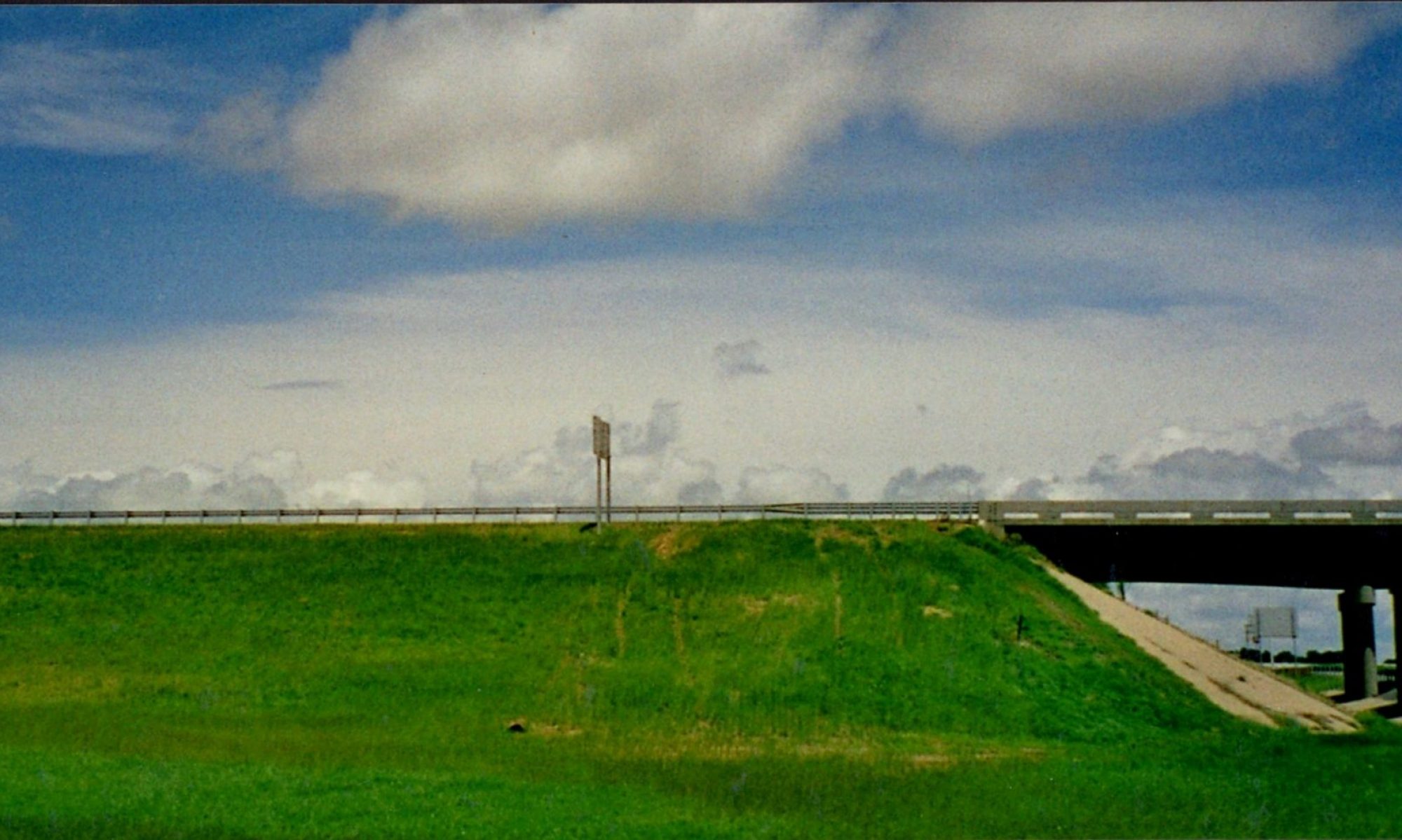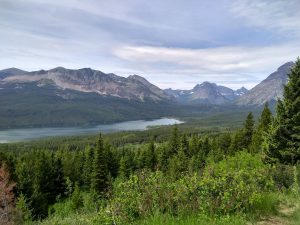
This journey began over 40 years ago as I was finishing a motorcycle tour of the west. I was traveling over the Nebraska plains after touring for 3 weeks, most of the time alone. I pulled off the road, under a blue sky dome surrounded by dry grazing land. All of a sudden, I felt an immense sadness, a sense of loss and emptiness. I was near tears and I had no idea why.
Years later, I thought I knew what had happened. During those weeks alone out in the open spaces of the west, I was away from everything that could remind me of who I thought I was. Many layers of my self had been dissolved through solitude and the vast western spaces. At the side of the road, I discovered there seemed to be nothing underneath. I had vaporized into the blueness like a brief summer rain, evaporating into the heat. There was no Thomas. I was an inert shell, sitting on a heap of metal and plastic by the side of a road. So, I sat for a very long time. After a while a few tears began to flow. I could not have said why. I was not feeling sorry for myself. But mostly I just sat, as if hypnotized by some angel Svengali. I could not move. Nothing had happened. I was empty.
In the end I managed to move a forefinger to push the starter button, I heard the bike come to life, the spell released me and I taxied back onto the roadway.
I had been keeping my self together in the previous days by mind tricks of counting the miles, worrying about changes in the engine sound, obsessing about gas mileage and conducting dialogues with imaginary foes or admirers; In the imaginary arguments that I always seemed close to winning, I found I had to start over again and again for reasons I did not understand. The obsessive dialogue left a stale taste like working on a piece of chewing gum, long after the flavor was gone. But I could not stop.
I have always felt that I needed to revisit that moment by the side of the road in Nebraska. For one, I have a feeling that there might be more (and less) to me than there was then. I wondered what I would encounter if I went back out under the endless sky? -In the Australian aboriginal culture young men begin their life with a “walk about,” to test themselves and perhaps to find out ‘what is there’ when the reminders of familiar life are stripped away. Many Native American tribes sent young men out on vision quests, to a similar purpose. –
Is there a time when you are too old for a vision quest? I don’t know, but I wanted to go back on the road. I had gotten delayed by life.
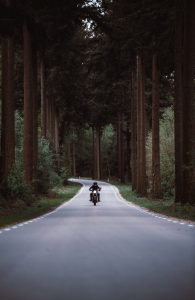
“On my bike, the relationship between my tiny human self and the immense world around me is unmistakable. I dip down and across a gully and feel the air change from hot and dry toward cool and damp, and back again as I climb the other side. I watch storm clouds with particular attention and, in the process, notice subtle changes in the light as it is endlessly repainted by clouds and passing time. Road surfaces matter to me, oil patches, bits of loose gravel, potholes; so does traffic and other people’s road behavior. Biking is much more like the rest of my life than driving. In my life, with its loves and vulnerabilities and interruptions and occasionally well planned achievements, I get in trouble when I fantasize myself as a massive figure within a small frame of reference. I do better when I imagine myself as a durable real, attentive and supple traveler who needs the cooperation of the large universe of which I am a part. Biking, I suppose, especially because it is so fun, helps me to like being small in a large domain. it is one of my favorite ways to make myself present to God.” John M. Staudenmaier, S.J
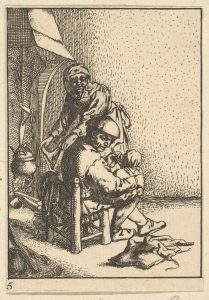
There was a time when my daughter was very young and I was sure I did not have a right to do any kind of touring until she had reached womanhood and was launched in life. I have always looked at fatherhood as being like a Tuskegee airman, flying escort as long as possible, then peeling off with a prayer and Godspeed.
I don’t exaggerate my importance as the first man in her life. I think of fatherhood as a poignant and absurd theatrical role. -In order for a child to develop confidence in herself and the world around her, someone has to create an illusion of stability. Now, as with Santa Claus, it is not true that the world is safe and stable. But children need to be cocooned in love, myths and stories while they are knitting together the sinews and wings that will carry them into life.
If they are privileged to grow up with healthy delusions about Santa, the Easter Bunny, and believing that that the world can be safe, it becomes hard wired into the brain’s neural circuitry so that later in life when bad things happen, there will be a loving quiet voice, that whispers “you will get through this.”
This is invaluable.
As my wonderful girl child has entered womanhood from time to time, we have conversations about her occasional self-doubt, questioning whether she can make it on her chosen path. Sometimes I say to her “you got into medical school. That didn’t come from a cereal box.” But sometimes doesn’t feel grown up (which happens to most of us). So, I give her the good news and the bad news: there aren’t any grownups. At least not in the way we thought of them as children. There was a time when, like the Wizard of Oz, I had to seem wise and powerful, because she needed that. But now she can see behind the curtain. In time I suspect she will take on the role of wizard with children of her own.
And so it goes.
Risk
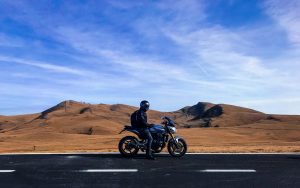
Riding isn’t dangerous in the way that most people think it is. There is potential danger to riding but there is danger in riding in a car, using a chain saw or going out for breakfast. Every human life ends.
Certainly, in terms of percentages, more people are killed on motorcycles than in cars; and cars are very dangerous (38,000 lives taken per year). On a bike you must be relentlessly watchful of the condition of the road and the shape of each curve. The baseline assumption needs to be that you are invisible to automobile drivers. This is strenuous.
And there is a level of skill required to ride safely that is a quantum level above that needed to drive. Serious riders do parking lot drills to keep their braking and handling skills sharp. And since riding requires mindful attention, many of us don’t consume anything which dulls your mind until the day has ended (though a glance at tavern parking lots on summer afternoons will tell you this may not be widely observed).
The wicked truth about riding a bike is that basic skills are easy to learn, and putting on speed takes almost no skill at all. But taking speed off requires a great deal of skill when it needs to be done quickly. Even negotiating a curve without running off the road requires experience and vigilance. Yet, strangely enough, over time it is easy to stop being mindful and begin to believe that you are an expert rider; though riding instructors say most people with ten years of riding experience have only one year repeated ten times.
But suppose someone (say, like myself) rides with full gear: suit, helmet, gloves and boots. Suppose they practice mindfulness, ride a machine suited to their age strength, and skills, and practice those skills regularly. And suppose they never ride at night or take a drink when riding.
Is such a person at greater risk than someone in a car? – I would argue that under normal conditions, there is some danger, but not so much. Skill, and mindful presence reduce the danger significantly (about 50% of motorcycle riding deaths are single vehicle events and involve alcohol).
But risks remain that cannot be reduced. These are the “black swans:” rare and random events which lie outside the probability curve. If a truckload of pigs falls off a viaduct, or a deer darts out on a narrow mountain road, you are better off in a Volvo. There is no doubt about that.
But one might argue that black swans occur everywhere, though infrequently. Even when driving a Volvo, if a drunk driver crosses the median it probably will not end well. The safest course for living is to stay home, have meals delivered, and watch Netflix.
But what kind of life is that?
The decision to get up in the morning and go for a cappuccino involves a cost benefit analysis. You will be safer at home and have more money in your retirement account if you don’t go. But perhaps there is really good coffee a mile up the road and there are outdoor tables where, on a sunny morning, you can read your paper. -There is risk in getting to the coffee bar by car, foot or bike. And black swans can visit there: deranged gunman, trucks losing their brakes, workers who have shown up to make your cappuccino carrying a deadly virus.
It is interesting how we manage to wander through life like the cartoon character Mr. Magoo, who was chronically nearsighted and oblivious to the dangers surrounding him (black swans and others). For most people it is only when they board an airplane or go off to a wild place that, for a moment, they take in the ways in which their lives are grounded in uncertainty.
I suppose that one of the things which is alluring about riding is that each time I suit up for a ride I face the fact that I am not a permanent feature of the universe; I am placed precisely here on the time line of my life. The smell of cut grass or asphalt, the sparkle of the summer leaves make me feel like a space traveler just landed on this planet. What is this place?
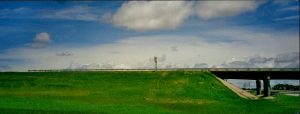
On a long quiet prairie highway I park the bike at the side of the road when my body like a querulous child finally demands it. “Now.” It says “you are here.”
In the silence I am cast up on the shore; clouds and sky and grass puzzling in their immediacy. I have as sense, almost, of being a space traveler who asks “what is this?” At that moment I realize that I do not yet know what “sky” or “grass” or “water” mean. I make a note in my notebook to return at some future date to further study the sample.
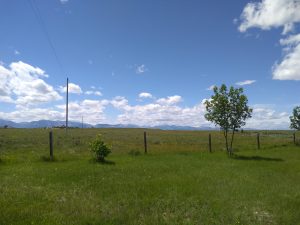
When you travel as an older man, you discover you cannot posit a series of practice runs that will, in time, produces understanding. You will not pass this way again.
The Sphinx arises in front of you again and again. Each time you must answer truly or be devoured. There is always something lost, dying on the side of the road.
it is hard to learn to live now. -In my dreams I have often walked about as a prisoner in an empty, fearsome place, where each turning seems to conceal an indefinable danger. I experienced need and desire as an infant knows hunger: wordless and urgent.
-And during daylight hours of working life, I was often unaware of the structure of my desires. I feared them. At times I resented being confined in the labyrinth of adult life. But semi-retired now, and set free, I now seek labyrinths of my own construction. I ride along western roads, my mind restless, asking how many miles to the next town?
The motorcycle opens up land and sky; you can see the bones of the Earth and the sheer unimaginable sweep of time. You are lost in trackless freedom. Where to sleep, where to stop? If here, why here? If I stop at this turn out, will I not need to stop there and there and there. It would seem that, again and again, the land lays claim to me . This copse, this bit of sparkle, these mysterious waters. What then? How do you choose?
How do you acquire the courage to live here rather than in some indefinable nowhere which self-hood requires?
Self-hood requires a backdrop, an observer and an actor. A scene creates an actor who is then observed by a ghost in the mind. But if the scene is vast and sublime, self-hood begins to dissolve, struggling to revive itself. As you ride along, fantasy dramas and meaningless problem solving begin to engage your attention.
-When you ride through a scene your mind begins to spin a story. The story and scene create edges to your awareness about what is me and what is not. The scene and actor then need an imagined audience to withstand the vastness of the land. The gaze of the audience establishes contours and boundaries.
In contrast, when you engage something deeper through meditation or spiritual practice this particular flavor of me-ness loses its contours. Can you ride with a meditative mind.?
On some days its possible.
